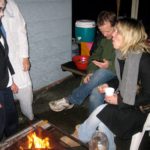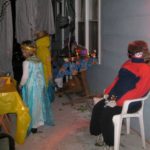Tag: ancient
Heaven is For Real, but is it as silly as they say?
On the recent topic of Heaven (and soon, Hell) here at the old blog, I must bring up the baffling and sappy rendering of the heaven that we hear about quite a bit in conservative North American Protestantism.
If a boy nearly dies, and then tells you details about heaven exactly as you have taught him, what’s next? I’ll tell you what, a best seller (for people who need a spiritual vitamin B12 shot for their excruciatingly literal translations of biblical passages, and who pay no mind to historical context, linguistic idioms, let alone Hebrew and Greek).
Now, I realize young children tell silly stories. That’s part of their job. The trouble comes when the stories get massaged and coupled with a near-death tragedy to elicit a faith response from the more gullible among us. I do want to think the Burpos are on the up-and-up, but something stinks.
I heard Pastor Burpo and his little boy on a television program. What a cute kid. Some of the story seemed amazing, if not miraculous, but I got a bad whiff of something when Colton (really his dad) detailed heaven as, well, super lame.
People get around on their huge wings. Okay, I hope that’s not how it works. Boobs have been bad enough. The proverbial pearly gates make an appearance. The word “wicked trite” comes to mind, but maybe I’m just too cynical. A blue-eyed Jesus wears a purple sash over his white robe, and rides a giantic rainbow colored horse. Okay, bad wardrobe, and how could the genuine biblical Jesus from the ancient Semitic region possibly possess a double recessive gene for blue eyes? (And don’t say, because both Mary and the Holy Spirit had blue eyes, ’cause I’m not buying it.)
I don’t think Jesus rolls like that. But, I give the kid credit: An elephantine rainbow horse is pretty cool. Of course, I would have to know if it pooped rainbow too. That’s awfully critical info. God (the Father) has a body and sits on the throne, with Gabriel serving as a kind of right hand angel man on his left side, in a smaller throne…as we might expect, right? It all sounds like a bad Star Trek episode. Well, sort of.
Reader reviews often complain that only 3 pages of the book speaks of heaven in any details. But the book has done well. Very well. It spent 52 weeks on the bestseller list, and the family has since produced a children’s picture book, and you guessed it, and movie rights have been purchased by Sony. Pretty sweet deal!
Possible movie title: “Heaven is for Reel: One Boy’s Near-death experience as re-told by his literalistic dad”
When the parents are asked about authenticity, their answers center on referring to the hope the story brings. This begs the question, is the point of the book to create hope in a plenty of people already know what they want heaven to be, instead of a faithful depiction of God (who, by the way, is non corporeal) and the Bible? (Which would be far more confusing.) Both can’t be true.
If you want to read a copy for yourself, and decide, here it is.
But, I offer you some thoughtful reflection on the the topic from arguably the foremost New Testament scholar alive today.









